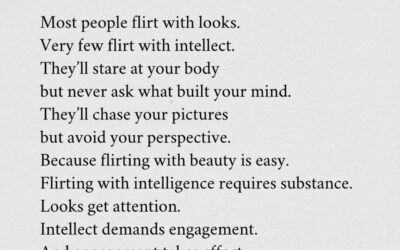It’s common for us to form quick judgments based on someone’s appearance or behavior. We often label people as “eccentric” or “weird” without considering the deeper story behind their presentation. My journey through healing and self-discovery has made me realize how easy it is to misunderstand others who don’t fit into conventional molds. This post isn’t about offering solutions but rather about sparking a conversation and encouraging us to think more deeply about our reactions to those who stand out.
As I’ve navigated my own path, I’ve noticed how easy it is to judge those who seem different. These judgments are often rooted in our unconscious biases and a desire to resonate with what feels familiar. However, I’ve found that those who seem different often have a depth of insight and experience that sets them apart. Their unique perspectives can be challenging to understand, especially in a world where fitting in is often valued over standing out.
So, let’s explore this idea together. Why do we judge others so quickly? What might we learn if we took a moment to look beyond the surface? This post aims to provoke thought and invite you to consider the potential wisdom and experiences behind the behaviors we might initially find strange.
The Human Tendency to Judge
It’s fascinating how quickly we form opinions about others based solely on their appearance or behavior. This tendency to judge is deeply ingrained in human psychology. From an evolutionary standpoint, quick judgments helped our ancestors assess potential threats and allies rapidly. However, in today’s complex social landscape, these snap judgments can often lead to misunderstandings and missed opportunities for deeper connections.
We live in a society that places a high value on fitting in and adhering to certain norms. When we encounter someone who doesn’t conform to these expectations, it’s easy to label them as different. This reaction is often a defense mechanism—a way to maintain our own sense of normalcy and comfort. But what if these individuals have something valuable to teach us?
Consider the ways in which we might judge someone who dresses unconventionally, speaks in a different manner, or exhibits unusual behaviors. These judgments can be quick and harsh, dismissing the person as strange without understanding the reasons behind their choices. We often fail to see that their uniqueness might stem from a journey of self-discovery and a refusal to conform to societal pressures.
The Deeper Meaning Behind Unconventional Behavior
When we meet someone who stands out due to their unique appearance or behavior, it can spark curiosity or even discomfort. However, these differences often reflect a deeper journey. Many people who don’t fit into societal norms have undergone significant personal growth and self-discovery, leading them to express themselves in ways that may seem unusual to others.
Those who choose to dress differently, speak their minds freely, or act in unconventional ways often do so as a result of breaking free from societal expectations. This journey of self-discovery involves embracing their true selves, which can lead to a richer and more authentic way of living.
By understanding that these outward expressions are often signs of deeper personal growth, we can begin to appreciate the courage it takes to live authentically. Rather than judging someone for being different, we might consider the insights and experiences that have shaped them. This perspective shift can open our minds to new ways of thinking and foster a more inclusive and understanding community.
The Wisdom of Non-Judgment
As we heal and grow, our perspective on the world and the people in it begins to shift. One of the most profound changes is the ability to recognize and challenge our own judgments. When we encounter someone who behaves or presents themselves in a way that we find unusual, our initial reaction might be to judge. However, healing teaches us that these snap judgments often reflect more about our own insecurities and biases than about the other person.
By adopting a mindset of non-judgment, we open ourselves up to a more compassionate and empathetic view of others. This doesn’t mean we have to understand or agree with everyone’s choices, but it does mean we can acknowledge that everyone has their own journey and reasons for being who they are. Non-judgment allows us to see beyond surface appearances and appreciate the deeper humanity in each person.
Reflecting on Our Judgments
Adopting a mindset of non-judgment is a journey that involves becoming more aware of our own thoughts and reactions. When we catch ourselves making quick judgments about others, it’s worth taking a moment to reflect on where these judgments come from. Often, they are rooted in our own experiences and biases, shaped by societal norms and expectations.
Imagine a scenario where you see someone who stands out because of their unique way of dressing or their unconventional behavior. Instead of immediately labeling them, consider pausing to think about their life experiences. What if their choices are a reflection of a deep and meaningful journey they’ve been on? What if their way of being is a result of breaking free from societal pressures to embrace their true self?
Reflecting on our own journey can be enlightening as well. Many of us have experienced moments where we felt judged or misunderstood. These experiences can serve as a reminder of the importance of empathy and open-mindedness. When we remember how it feels to be on the receiving end of judgment, it becomes easier to approach others with kindness and curiosity.
Next time you encounter someone who seems different, consider what their story might be. What challenges have they overcome? What wisdom have they gained through their experiences? By shifting our perspective from judgment to curiosity, we open ourselves up to new possibilities for understanding and connection.
This approach doesn’t require us to have all the answers or to fully understand everyone we meet. It’s about recognizing that each person has their own unique journey and that these differences enrich our collective human experience. Embracing this mindset can lead to a more compassionate and inclusive world, where we appreciate the diversity of human expression and the many paths that people walk.




0 Comments